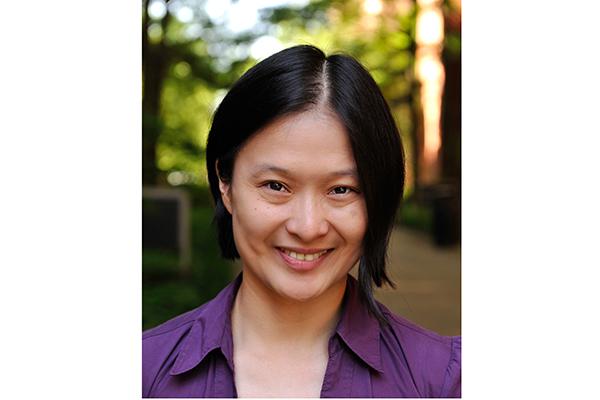
The Institute for Chinese Studies presents "Sino-U.S. Relations: New Perspectives" series:
"Rethinking Sino-U.S. Politics through Chimerican Media: Rising China and the Transpacific Turns"
Fan Yang
University of Maryland, Baltimore County
with commentator
Jennifer Hubbert
Lewis & Clark College
Abstract: This talk draws on my book manuscript, Disorienting Politics: Rising China and Chimerican Media, to rethink a media/cultural studies approach to Sino-U.S. politics. Chimerican media refer to a set of transpacific media artifacts and processes that make visible the economic, cultural, political, and ecological entanglements of China and America - the two twenty-first-century “superpowers” sometimes dubbed “Chimerica.” Most Chimerican media are produced in the United States, whether it is The Martian or House of Cards. But they also capture the myriad processes that characterize the Pacific as a space of Chimerican - among other Asian and American – encounters, which have expanded tremendously since China’s entry into the World Trade Organization in 2001.
From election campaign ads and popular films to TV/Netflix shows and journalistic accounts, Chimerican media often feature an elusive yet racialized presence of the Chinese state. This figure, what I call Rising China, is not merely a pre-formed object to be (mis)represented but an agent co-constituted with Chimerican media. Shaping and shaped by transpacific interactions, Rising China produces a disorienting effect on politics. That is, it extends a political imagination beyond the place of the nation and into the space of transpacific media.
Chimerican media as a kind of transpacific media offer competing visions of state and citizenship. Yet the widespread tendency among US cultural producers to racialize the Chinese state has made it difficult to recognize Chimerican entanglements as a basis for imagining politics anew. Engaging with the epistemic remapping known as the transpacific turns, this talk calls for a relational politics - beyond the conventional framing of Sino-U.S. relations - that acknowledges the multifarious and uneven interconnectivities between people, places, media, and environment.
Fan Yang is an Associate Professor in the Department of Media and Communication Studies at the University of Maryland, Baltimore County (UMBC). She is the author of Faked in China: Nation Branding, Counterfeit Culture, and Globalization (Indiana University Press, 2016). Yang’s scholarship lies at the intersection of transnational media/cultural studies, globalization and communication, postcolonial studies, and contemporary China. Her work on branding, internet censorship, transnational media, and urban communication has appeared in journals such as Cultural Studies, Theory, Culture & Society, positions: asia critique, New Media and Society, Verge: Studies in Global Asias and Environmental Humanities. In addition to completing Disorienting Politics, she is currently interested in further exploring China’s connection to the Global South through her research on Shenzhen as a media city and China’s “One Belt, One Road” project (or the “Belt and Road Initiative”).
